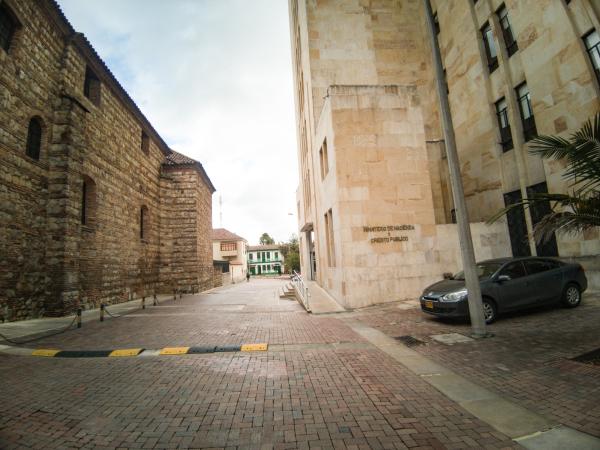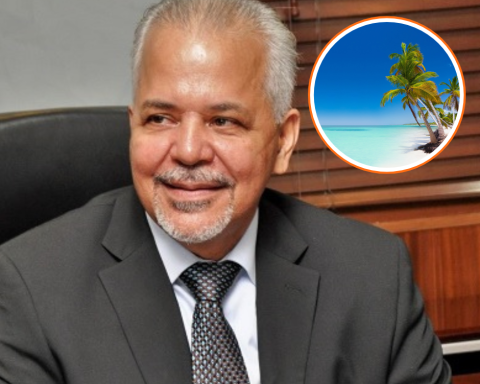President Gustavo Petro and Minister Ricardo Bonilla are currently facing a complex situation with the processing of the budget project for next year, since their accounts apparently did not convince Congress, where they continue to insist on the need to cut at least $12 billion to avoid that the country falls into a scenario of fiscal instability due to the money it lacks.
Although the Government presented a financing bill proposal to cover up Part of the gap, which some analyses estimate at $29 billion, was filled by the tax changes that were put on the table, which were not well received, since the legislature believes that the stakes are not high enough and that, contrary to what the Ministry of Finance expects, they will cause a drop in tax collection and will favor the economic slowdown.
More news: Will the General Budget for 2025 be issued by decree? Petro opened the possibility
All of this has led the budget talks to a scenario in which, on the one hand, there is insistence on cutting back, and on the other, there is a warning that this will not happen and that if spending were to be cut, the cuts would not be in operating amounts, but in the investment and resources that must be sent to the regions for this task. This has been interpreted as a threat.
Budget by decree
Tensions have reached such a point that President Petro himself does not rule out thatand the 2025 General Budget of the Nation is issued by decree, arguing that the law allows it and that its priority is to guarantee social investment and that at no time has it put the fiscal stability of the Nation at risk.
Ministry of Finance – Ricardo Bonilla.
According to the head of state, there is currently “a paradox that has formed today. The majority of economic commissions will not approve the budget law because they do not want the financing law”, in his opinion, due to the confusion that exists about the impact of the tax change.
“The financing law does not increase taxes for individuals, except for the super-rich, and lowers income tax for all companies in Colombia except for fossil fuel extraction companies. “Why don’t they want to lower income tax for all companies in Colombia?” he added.
In this regard, he warned that “it seems that the budget, as the Constitution and the law say, will be issued by decree,” referring to the rules of the game that are set out in the Organic Budget Statute and in a move that did not go down well with those who know about budgetary legislation.
You may be interested in: Unions warn Congress of the harmful effects on poverty and employment due to labor
One of the first calls was from former Finance Minister Mauricio Cárdenaswho invited President Gustavo Petro to think with a “cool head,” since “if he issues the budget hastily and by decree is left without financing, which is of no use to him, then in January he would have to cut it.”
“It is better to acknowledge once and for all that it is inflated. The country is clear that what you want is to spend in 2025 to improve your favorability at the expense of 12 billion in new taxes. No one with common sense accepts that. The economy cannot hold up,” said Cárdenas.

Colombian pesos
Think carefully
Juan Camilo Restrepo, former Minister of Finance and expert in budget issues, said that what the national president proposed can be done, although complying with some requirements set out in the Organic Budget Statute, such as providing everything the debate in the Senate and the House of Representatives, where the entire process must be exhausted.
“It can be issued by decree when Congress, through negligence, does not approve the budget that the Government has presented before October 20 of each year. Since the country cannot be left without a budget, then the Constitution and the organic laws provide that in that case the budget can be issued by decree, it is the only possibility that exists,” he said.
In this regard, he explained that if the budget is issued by decreethe budget originally presented to Congress is taken as a basis, which would be $523 billion, on which the distribution of resources by entities and sectors would be made, at the discretion of the Casa de Nariño, although taking as a reference documents such as the fiscal framework and that the established debt limits cannot be exceeded.
The latest: Inflation in Colombia would continue with a ‘tailwind’: how it would close 2024
“It is said that negligence occurs when, come October 20, the official budget for the next year is not issued. This is considered a kind of budgetary negligence and therefore the Government must make up for it, but this can only be removed when the entire process is complete and an attempt has been made to debate it,” said Restrepo Salazar.
Fiscal dictatorship
With all of the above on the table, if it is decided that the budget will be passed by decree, Colombia would enter a scenario never seen before. This is a fiscal dictatorship, a term that is regulated by law and which refers mainly to what the Casa de Nariño suggests could happen.

Recession
Henry Amorocho, professor of Public Finance at the Universidad del Rosario, said that the “fiscal dictatorship” is activated when Congress does not approve the budget within the established deadlines (before October 20). In that case, the Executive has the power to issue the budget by decree; to close the differences between what was proposed and what was approved, both in the amounts of expenditure, as well as in the proposed financing.
This teacher added that the accounts that would be taken into account for the decree to be issued, are the ones that are in force, so “the budget for the previous year was $502 billion and when that amount was approved, there were estimates that did not yield and led to postponing expenses for $20 billion. That case definitely has to be converted into a reduction of appropriations because there are two situations that did not yield in legal matters, the two conditions that did not yield in legal matters.”
“There were no tax disputes for $15 billion, nor was there a non-deductibility of royalties for $6 billion. That is to say, that budget project, with a clearly reduced legality situation at the time when the decree was exceeded, would have to have the sum of $21 billion reduced,” Amorocho said.
If what Professor Henry Amorocho said were fulfilled, the General Budget of the Nation should be $481 billion, a figure even lower than what is being proposed by Congress and which for President Gustavo Petro would end up affecting the country’s economic development.


















